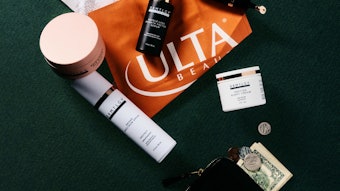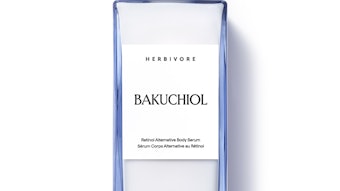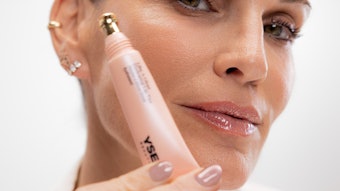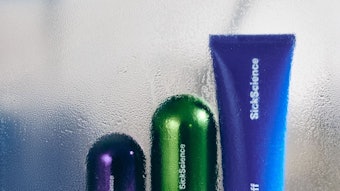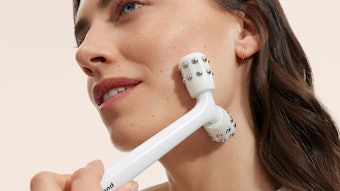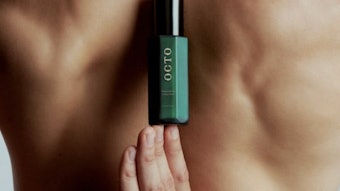- Battling through greenwashing and low consumer understanding is still a sticking point for natural beauty brands, but continued work helps bring more awareness every day.
- Environmental sustainability through methods such as recyclable packaging, biodynamic farming for ingredient sourcing and better supply chain solutions are important considerations for natural consumers, and therefore natural brands.
- Working with green associations and organizations can help find solutions for challenging natural problems, and it also helps to create a sense of community within the movement and contribute to a positive social impact.
- Transparency and integrity is perhaps the greatest key to natural consumers. They want answers to their brand questions straightforward and honest.
With niche market players and mass market brands vying for shelf space at every turn, beauty brands that differentiate their products with an understanding of the needs of natural-leaning consumers are gaining a significant edge on their competition.
A few years ago, organic and natural enthusiasts who really studied ingredients and sought out authentic products could only be found at Whole Foods or Pharmacas in major cities. However, now this population—which also includes many early adopters—is growing. “In addition, more consumers are dipping their toes in the water, away from conventional products,” says Karen Behnke, founder of Juice Beauty.
Consumers are buying natural beauty products, in part, because of growing concerns about synthetic chemicals, but concern for their own well-being and for the sustainability of the planet and its people are major drivers.
Product Quality
The natural consumer is very ingredient-conscious, and primarily looking for results first and healthful ingredients second, according to Behnke. While price also is a factor in today’s economic times, natural and organic consumers are willing to pay more for a brand they can trust.
Behnke assembled a team of experienced scientists to create clinically validated products supported by solid eco values, including purchasing from certified organic farmers and manufacturing with solar power, for her line. Juice Beauty uses ingredients such as alpha lipoic acid, coenzyme Q10, DMAE, peptides, fat-soluble vitamin C and essential fatty acids for results proven by clinical studies that have shown a reduction in free radical skin cell damage, which means fewer wrinkles and sun spots.
“New ingredient information comes out all the time, so we try to stay on the cutting edge of efficacy and purity,” says Behnke. As a smaller company, Juice Beauty has the ability to be nimble and continually enhance and improve its formulations to compete with bigger corporations.
The company’s recent Stem Cellular Repair series is one example of how the brand meets consumer efficacy needs. The proprietary blend of fruit stem cells injected into an organic, resveratrol-rich grape seed formula penetrates the skin to repair damage. The brand clinically validated the results through independent lab studies, measuring improvement in fine lines, dark circles, skin tone and elasticity, and it published those results with its product marketing.
All of the Juice Beauty products, available at retailers throughout North America and Asia, also meet two rigorous organic standards: California Organic Products Act and the USDA National Organic Program Law. The California Organic Products Act requires a minimum of 70% total organic content excluding water. In addition, Juice Beauty is in the process of NSF organic certification with the guidance of one of its big retailers, Whole Foods, which the company aims to achieve by 2013. “The certification process is tough and expensive, but it is worth it to produce a product that allows users to put pesticide-free and pure, high-antioxidant ingredients on their skin,” says Behnke. “It’s also worth it to save our planet.”
Unfortunately, consumer confusion remains a major barrier in this niche. A large number of brands are making natural and organic marketing claims, preventing consumers from distinguishing between legitimate products and falsely labeled ones. And so far, there hasn’t been one single label out there that tells consumers about everything.
Consumer education continually plays a role here because more information is continually available online, particularly through blogs and social networking sites. Having other people talk about your products rather than the company saying it’s the best, even on the package, lends the brand credibility. One reason Juice Beauty is doing well at Ulta stores nationwide is because consumers are demanding more healthful yet high-efficacy products, and the proof is in the product. Using green chemistry to satisfy its core truths for clinically validated and authentically organic products allows brands to meet consumer’s needs in a real way with desired products.
Environmental Sustainability
With natural companies leading the way, consumers are able to make more environmentally friendly choices as well, and without sacrificing quality. Weleda, with decades of R&D experience in natural and organic beauty product development, has made building natural, efficacious and stable products an art. Because consumers are familiar with the quality of Weleda products, CEO Jasper van Brakel says the real scoop is in the founding of the company and how it grows its ingredients in its own gardens.
Weleda has 50 acres of biodynamic gardens in Germany with more in Switzerland, France, the U.K., the Netherlands, Argentina, Brazil and New Zealand, collectively growing more than 300 healing plants and flowers. The concept of biodynamic agriculture is a method of organic farming that emphasizes the holistic development and interrelationships of the farm as a self-sustaining system that conserves resources such as water and soil. Composting, fertilization and pest control use natural farm resources, and chemicals or growth hormones are forbidden.
Weleda also developed partnerships that allow the company to source ingredients from both small and large farms, cooperatives, and cultivation projects, all while committing to sustainable fair trade practices. “We know most of the farmers who grow on our behalf,” van Brakel explains. It enables the company to spread the word to other farmers about the benefits of organic and biodynamic principles and help convert more lands to meet these high standards.
Especially in the U.S., packaging is a growing environmental concern as well. Weleda launched four new body lotions featuring organic botanicals from organic farms in Sicily and Turkey. The unique, recyclable bag-in-bottle design and airless pump protect preservative-free formulas from oxygen and pollutants and extends shelf life. “We didn’t invent the technology, but we’re the first to use it on a global level and at this scale,” says van Brakel.
Weleda is one brand also trying to play a pivotal role in harmonizing certifications, mainly in the interest of the consumer. Van Brakel has teamed with competitors to see if they can establish a common denominator in better green labeling. “There are three or four serious initiatives, but we need to get together and make it one,” he says. “We don’t think the government should regulate, but if the FDA would get involved, that might help the consumer.”
For the international market, there has been progress with these certification and labeling initiatives, but it has not been easy. “It’s slow. I would like to see that happen faster,” notes van Brakel. “Education is key, for the sake of the consumer and the planet and the industry.”
Community Cares
Being a natural brand also means thinking outside ourselves. “People are starting to realize more and more the impact of their purchasing decisions,” says Sapothecary’s director of operations John Bailey. Sapothecary, a private label manufacturer based in California that provides handmade soaps based on organic, food-grade extra virgin olive oil, is pursuing USDA organic certification. While this certification is not designed for cosmetics, Bailey feels it’s going to help show the integrity of the products. His advice is to go for the strictest certification you can.
All of Sapothecary’s soaps are cold processed, meaning the oils and lye are combined at 105°F or less. The low temperature keeps the delicate ingredients from degrading, because at high temperatures, the high-quality oils can become rancid. It’s also a slower process that allows workers to give attention to the custom artisan process used to develop the products.
Sapothecary’s soaps also utilize controversial palm oil. Bailey was involved previously with the Rainforest Action Network (RAN), so he knew about the negative side effects harvesting palm oil can have on the environment as well as the indigenous people and animals. He soon discovered the most serious problems came from commodity palm oil from Malaysia and Indonesia, where tropical forests were being cleared to make way for plantations.
So, he started looking for certified, sustainable organic sources. RAN pointed him to Agropalma in Brazil, which has a variety of fair trade and organic certifications. The company only plants palm trees on previously degraded ranch land. “Rain forest isn’t being cleared to source the palm oil and no pesticides and herbicides are used,” notes Bailey.
In addition, there was an opportunity to address social impact. Agropalma has established partnerships with the government and local communities to contribute source income and job creation in the region. Currently, the program assists 185 families of small farmers who own six to 10 hectares of palm plantation. This type of palm production has led to a significant rise in families’ income and lifestyle improvements, and socio-environmental studies have shown, within benefitted communities, the family agriculture program has improved environmental performance as a whole, including activities not directly related to palm cultivation.
Business and brand principles such as this that align the company with fair trade practices and organizations that give back allows consumers to feel good about purchasing and supporting a brand.
Transparency and Integrity
No matter where your brand focuses its values, transparency and integrity are important when reaching the natural and organic consumer. “You really need to be upfront and honest about what is in your products and where it comes from,” says Bailey. Consumers are intelligent, and they are not afraid to ask questions.
Present clear information on your website and in the depth that consumers need and want. For Sapothecary, retail sites must clearly present basic information that avoids bogging down the loyal consumer with endless hype, but links that allow those who are interested to dig deeper must also be included. “With a complete website, first-time consumers have the confidence to place an order,” explains Bailey. It’s also important to be available. “People are frustrated with the vast scale and impersonal nature of corporate entities,” he adds, and beauty brands can take advantage of this by intimately targeting your local area or niche and being upfront about your eco values.
“People can tell the difference between brands telling a story and when they are doing something real,” says van Brakel. In being committed to the real natural deal, companies such as Sapothecary, Weleda and Juice Beauty not only offer a quality product but one with meaning. “It’s not just a fancy marketing story, but reality,” van Brakel explains. “With that, the product sells itself.”
Sara Mason is a freelance writer based in the Chicagoland area. She was previously managing editor of GCI magazine.


